Hotel New Otani Tokyo is holding a Tottori Wagyu Fair for its second consecutive year, to promote the prefecture's high-rated wagyu, following its gold medal at the National Competitive Exhibition of Wagyu (also known as the Wagyu Olympics).
I sat down with Tottori Prefecture Governor Shinji Hirai, who was in Tokyo recently for the promotion, and Takahiro Ota, Chef de Cuisine of Hotel New Otani Tokyo, to learn more about the rising star of beef - Tottori wagyu.
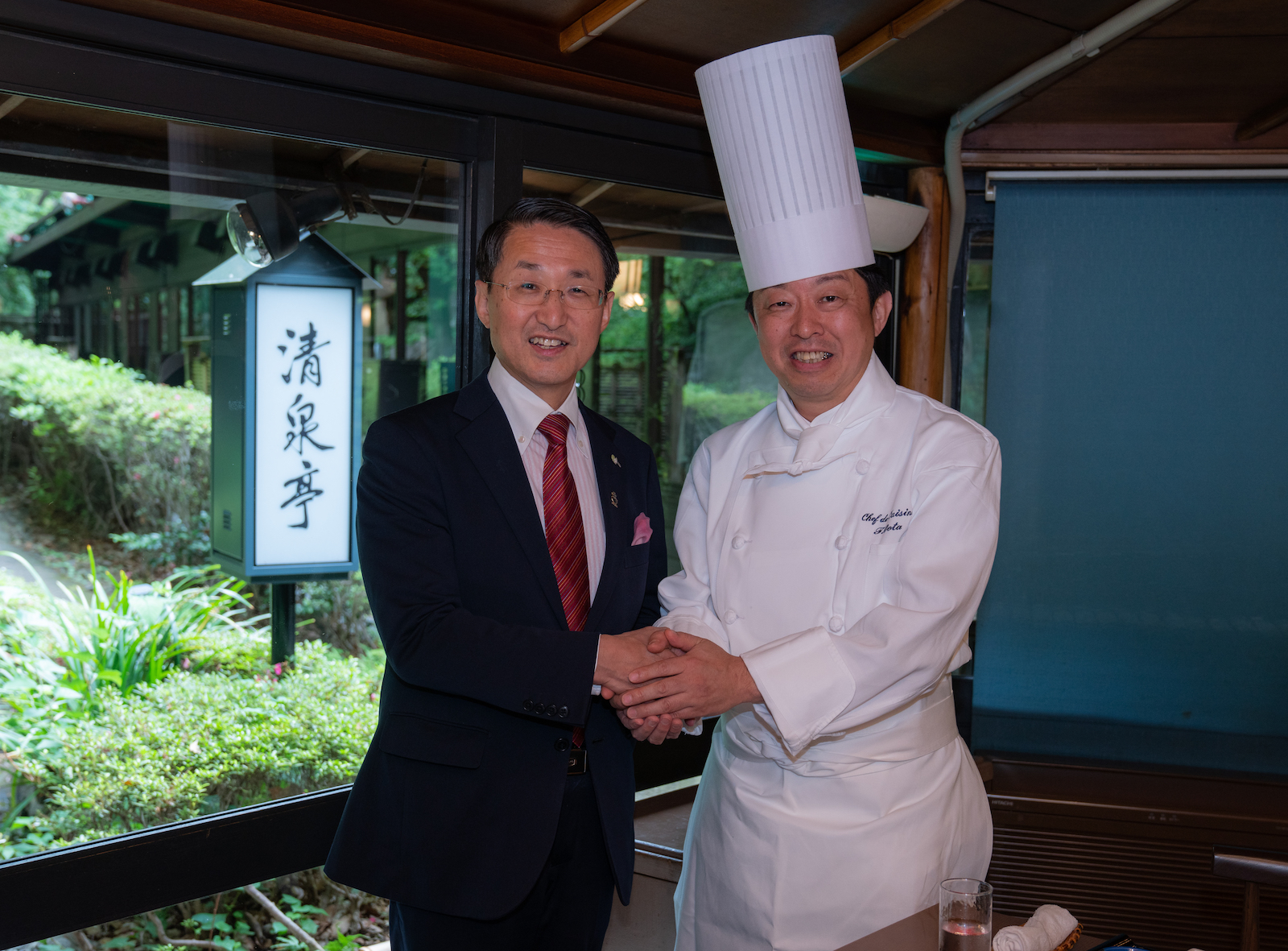
“I’m really appreciative that Hotel New Otani is holding the Tottori Wagyu Fair again this year,” said Hirai. “Since the previous year, foreign visitors’ fondness for Tottori wagyu has grown and I’m pleased that people around the world are learning about it through the grapevine.”
While Kobe beef is well known across the globe, other wagyu brand names have also gained fame, such as Matsusaka, Hida or Yonezawa. Most wagyu-lovers can probably name Maesawa, Ishigaki and Sanda. But a new star has joined the pantheon of wagyu names - Tottori wagyu. It is not as praised as it should be, considering that it actually won the best beef award at the Wagyu Olympics, an event that is held every five years.
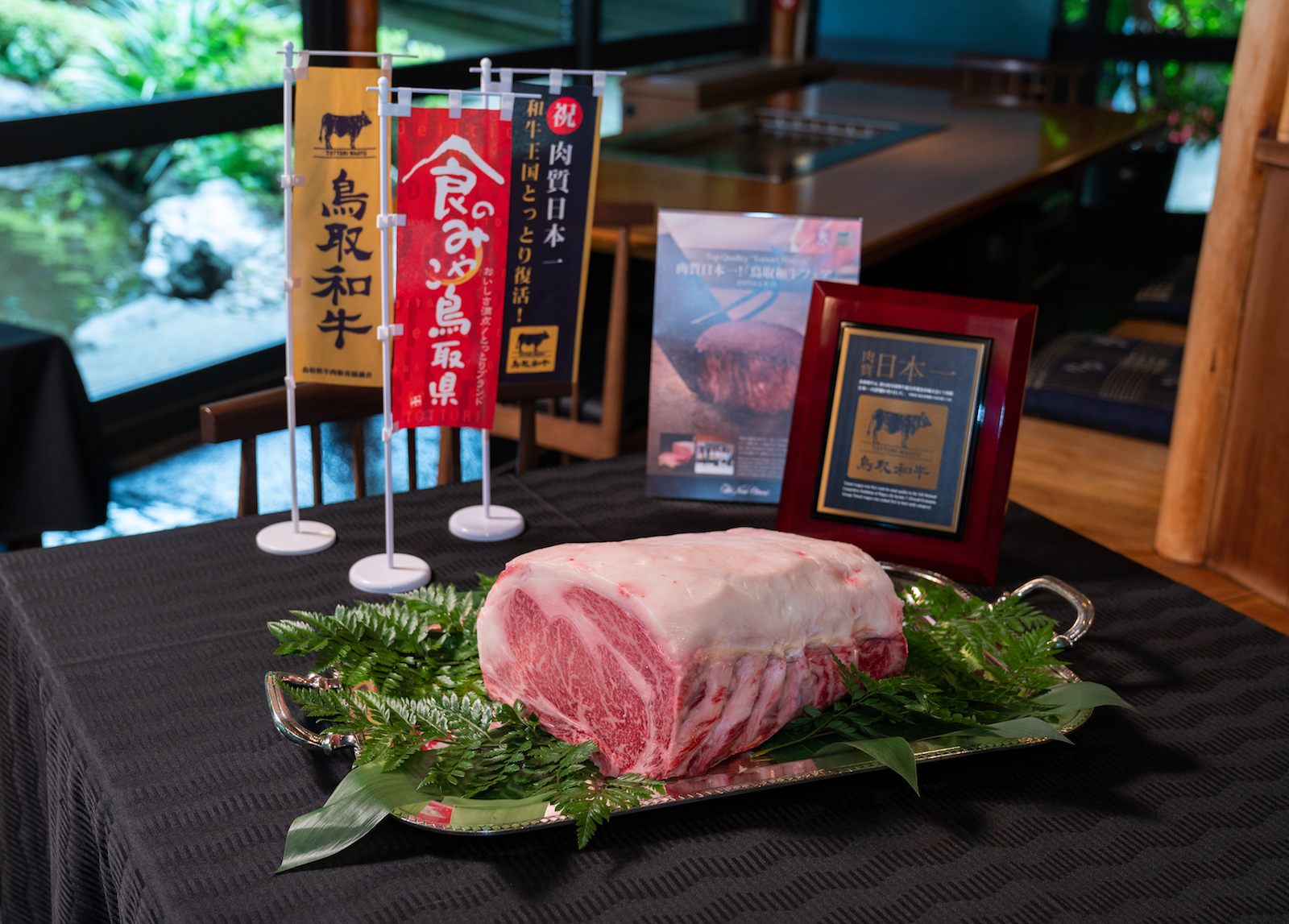
“Tottori Prefecture is in the spotlight being Japan's No.1 travel destination (read more here). From the sand dunes, Mt Daisen, to the beautiful coastline of the Sea of Japan, Tottori is not only famous for tourism. Gourmets flock to the prefecture for the local specialties. Crabs and Tottori-grown pears have won acclaim, but beef did not seize the glory until very recently,” said Hirai who speaks passionately about the prefecture that he represents, and also about the beef especially because “I was born in the year of the cow, so I feel a sense of dignity.”
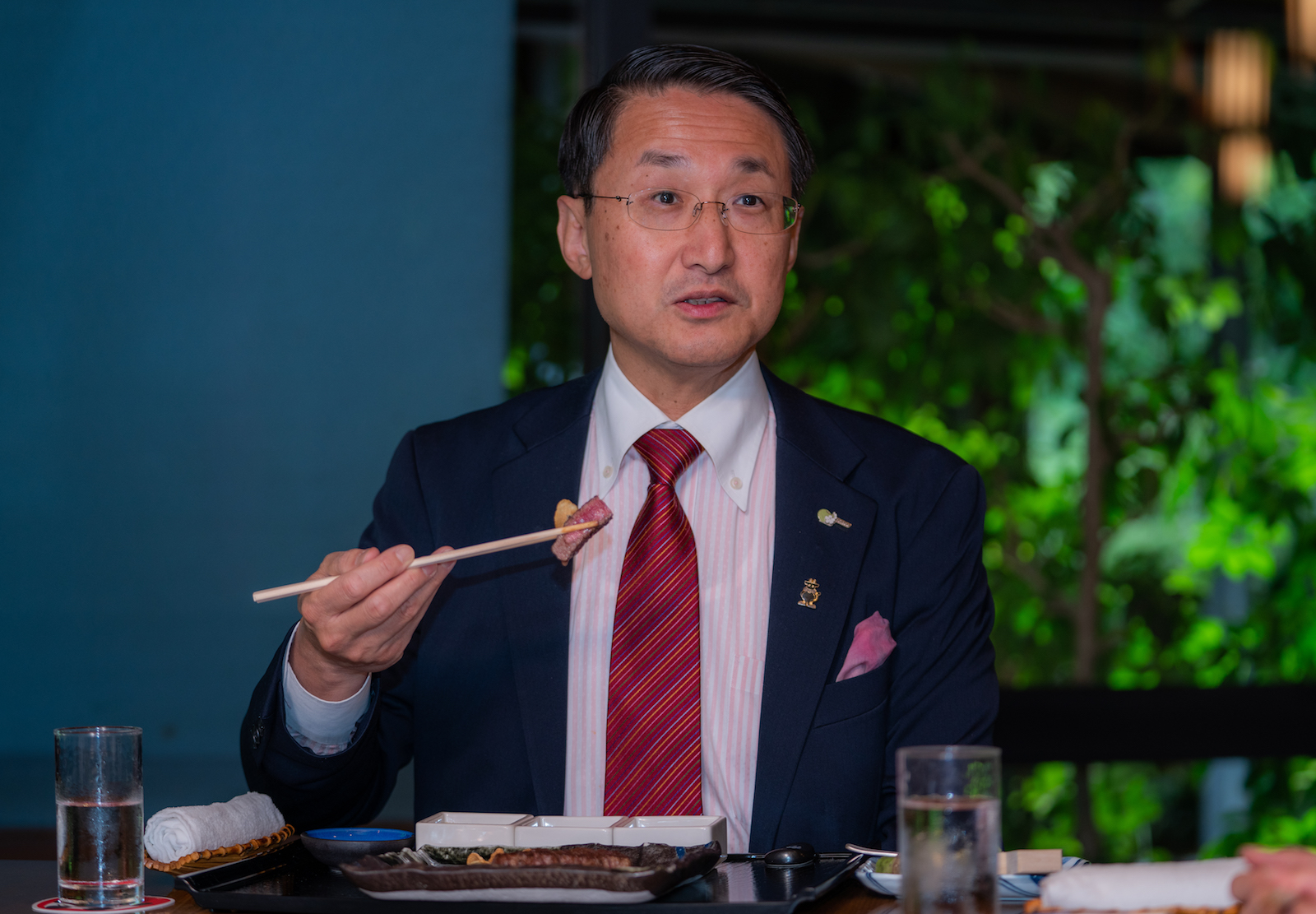
Asked how many times a week he helps himself to Tottori wagyu, the governor replied: “I don’t get to eat that much Tottori wagyu myself mostly because of its price. Occasionally we do nabe (hot pot) at home when we find a block of rump, which is a fairly reasonably priced part of the meat.”
Tottori wagyu can rarely be found in local supermarkets since it accounts for only 0.6% of commercial wagyu. In Tokyo, it is sold at Isetan Shinjuku. Its scarcity value is inevitable, yet needless to say, these cattle are truly sought after.
“The cows’ health is monitored and they are taken care of much more than I am!” said Hirai with a laugh. They are fed with local straw and mineral water from Mt Daisen. The natural spring water from Daisen has become one of the best-selling PET water bottle brands across the nation.
Tottori wagyu is bred under the “Ketaka” bloodline, which is said to be the progenitor of more than 300 wagyu brands in Japan. According to Hirai, the Ketaka bloodline was born around 1919 when the standard of wagyu had not yet been established. Tottori people are said to have installed a system to keep track of the family register of each wagyu cow and have been incorporating it for over a hundred years.
“We embrace the importance of bloodline to ensure the best quality,” Hirai said with confidence. As for the smuggling issue, Hirai said: “We held a conference in May to enact Japan’s first ordinance to protect our wagyu.”
Chef Ota strongly agrees. “It’s wrong that things are taken from us and changed to become something else. Protection is very important.”
The Ketaka breed is not only famous for its taste, but it has also been scientifically proven that Ketaka breed is full of oleic acid, Hirai said. “Oleic acids are found in olive oil and are said to get rid of LDL cholesterol in your body.”
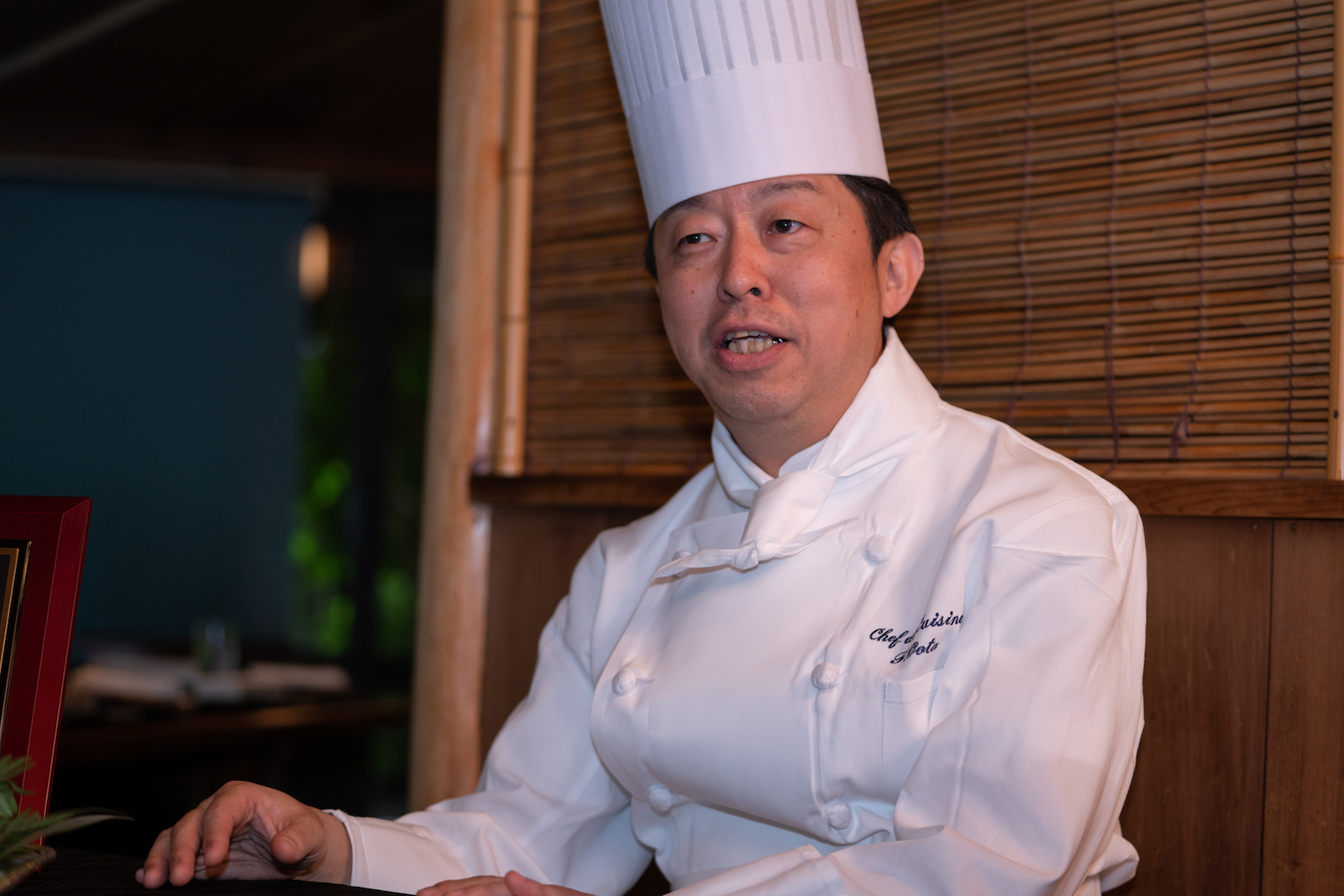
Ota adds: “Yes, beef full of oleic acid has an impeccable flavor and scent. The fat is light and dissolves in your mouth quickly which makes for a better umami flavor. I also believe that eating high-quality beef can lead to a healthier life.”
Hirai concurs. “Wagyu fat is totally different from lard, and is healthy. Also, data shows that the melting point of the oleic acids which the Ketaka breed contains is 16 degrees. Which means it melts at a very low temperature, even on your tongue, creating an impeccable melt-in-your-mouth experience.”
Hirai proudly recalled how, at the Japan-U.S. Governors Forum held last year, “the Nebraskan governor proclaimed Tottori wagyu as No. 1. Most of the American governors were congregated at the wagyu booth and they just couldn’t stop ‘tasting’ it.”
As much as they want Tottori wagyu to be known as the best beef in the world, Hirai and Ota both agree that it’s best for inbound visitors to enjoy it in Japan rather than the prefecture trying to export it, which can be a struggle.
“Meeting the standards for export is difficult. We send some beef to Taiwan and some to Hong Kong, but mostly, we don’t even have enough to distribute throughout Japan,” Hirai said.
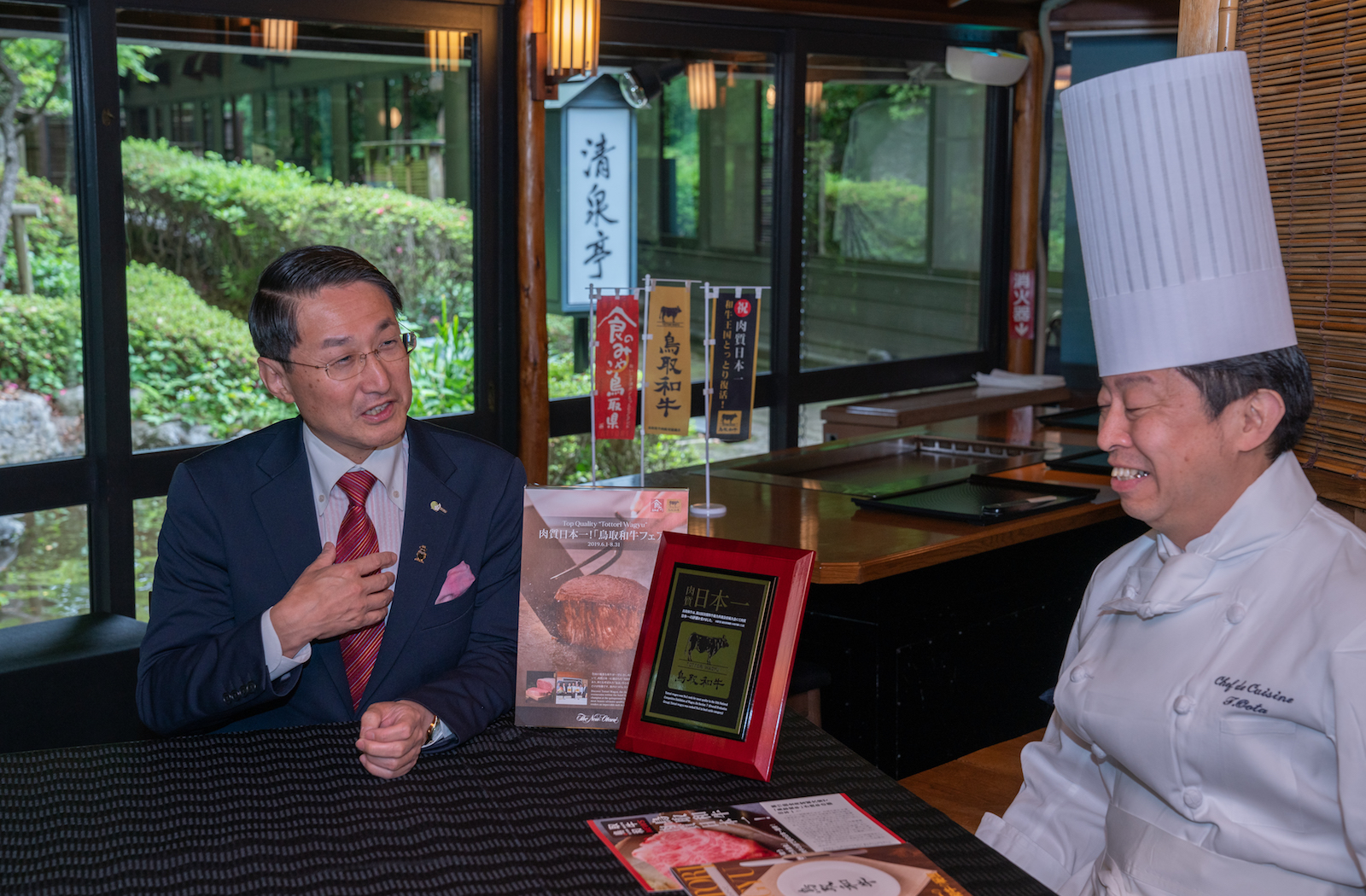
During the Tottori Wagyu Fair, which runs through Aug 31, the New Otani is offering Tottori beef in five restaurants. “I would like our guests to simply enjoy the ultimate flavor and quality and the balanced marbling,” said Ota.
Tottori wagyu can be enjoyed at Steakhouse Rib Room, Teppanyaki Sekishin-tei, coffee shop Satsuki, buffet dining The SKY, and Japanese cuisine KATO'S DINING & BAR. A few menu items that Ota supervised include a healthy dish, “Fried “J-cereal” Udon Noodles with Tottori Wagyu” (¥3,600), made of eight grain rice noodles, served at Satsuki; “Teppan Sukiyaki” (Seared Tottori Wagyu) served as part of the buffet at The SKY; and a “Tottori Wagyu Dinner Course” (¥27,000) at Sekishin-tei.
Despite having to catch a plane back home, Hirai was happy to talk more about the delights of Tottori. He himself likes to go to the sand dunes during his time off. “They have become an activity spot with sand boards, paragliding, yoga and star gazing tours,” he said.
He also recommends an ice cream made of milk from cows at a farm in Daisen. “The people of Tottori are very diligent. So the quality standards are constantly kept high. And this goes for taking care of the wagyu, as well as for nyugyu (milk cows). The cattle are raised free range so they are stress-free. Healthy cows make delicious milk.”
Tottori Prefecture is recognized for its stress-less environment. Apparently the longest commuting time from home to work is about 20 minutes. “I live right behind my office, so it only takes me three minutes to walk to work,” Hirai said cheerfully.
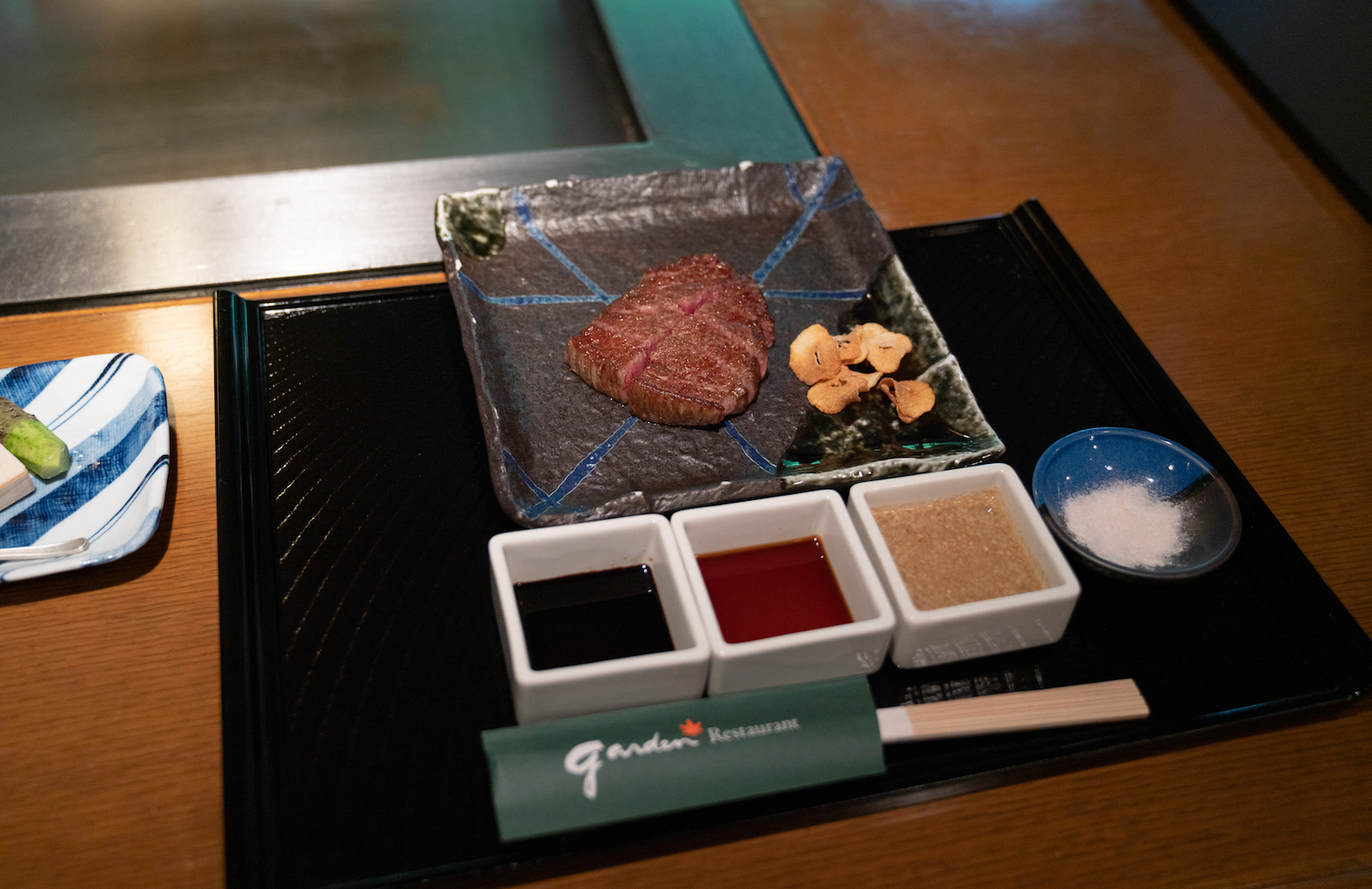
After chatting with Hirai and Ota, the big moment arrived and I had the chance to try the Tottori wagyu fillet steak (100 grams) with three different kinds of sauce at Sekishin-tei. Living up to my expectations (trust me, they were building up sky high during the interview), the fat is, by far, different from any other wagyu I have had before. The meat not only melts instantly, but it turns into juice in one bite, spreads, and then dissolves, leaving only the sweet umami behind.
Ota said, “Demand for Tottori wagyu is increasing and so are the prices.” The Hotel New Otani Tokyo fair could be your chance to enjoy this rising beef star before it becomes an almost unattainable utopia.
For more information on the hotel, click here.
© Japan Today Take our user survey and make your voice heard.
Take our user survey and make your voice heard.




2 Comments
Login to comment
smartacus
I love wagyu, but unfortunately it's a bit out of my budget range. But the New Otani is definitely worth a visit, if only to go walking in its beautiful gardens and see the carp ponds. You'd never know you were in the middle of a big city. It is so serene.
D
Wonderful write up by Mai Shoji! Her written English inspired me to read everything.